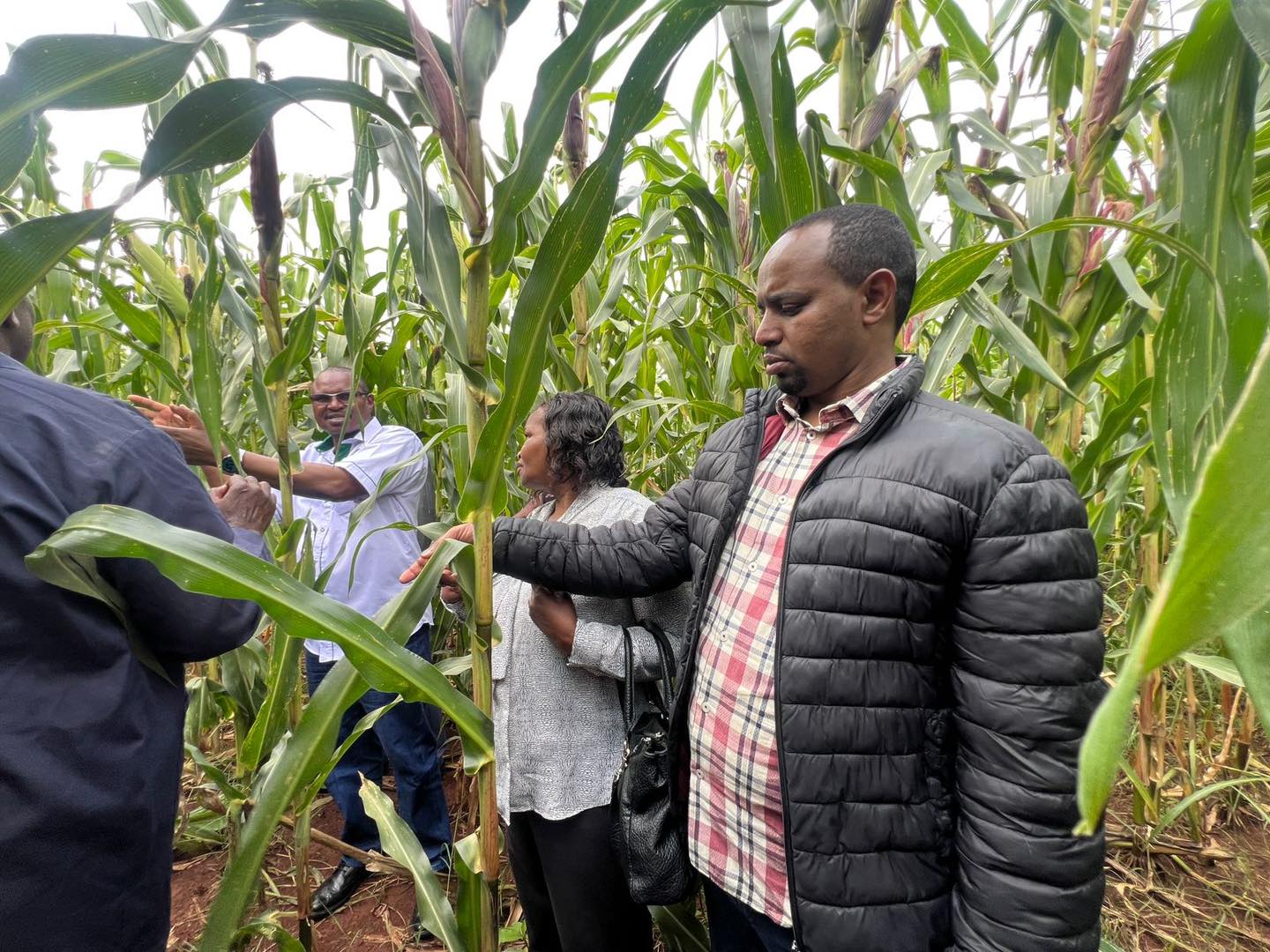

The Kenya Plant Health Inspectorate Service
(Kephis) has warned farmers against purchasing or planting fake seeds as the
short rains approach.
The service said rogue officers are claiming to be Kephis employees who are selling fake seeds at the
expense of food security.
Kephis chairman Joseph M’eruaki warned that fake
seeds are likely to fail and
can land one in jail.
“Very soon, our inspectors will be going round and
will be very keen to ensure farmers are getting the correct seeds for
planting,” he said.
M'eruaki spoke in Kitui County after meeting County Commissioner Kipchumba Rutto.
He said the illegal fake seed trade has been
a thorn in the flesh for farmers and the government but expressed optimism
that soon it will come to an end.
M'eruaki urged farmers to ensure they purchase seeds from agrovet shops that are licensed by Kephis and ensure the packaging materials have a Kephis emblem and sticker.
“A farmer is supposed to scratch the sticker to
reveal a code, which when sent to 1393 will give feedback to indicate whether
the seeds are real or fake,” M’eruaki said.
The feedback message will reveal the lot number,
when the seeds were packed and other relevant information.
“With that, the farmer will be able to know
whether the seeds are genuine or fake,” M’eruaki said.
When the seeds are fake, farmers are advised to
report to the nearest agricultural office or police station.
The sticker also has a Kephis number where farmers
can call and ask for help.
Kephis managing director Theophilus Mutai said they
have dispatched inspectors across the country, especially during the short
rains around September and October to be on the lookout.
“Any person found selling fake seeds will be
arrested and prosecuted according to the Seed and Plant Varieties Act,” he said.
The managing director also said they are opposed
to the proposed amendment of the Seed and Plant Varieties Bill.
The Amendment Bill was sponsored by Narok Senator
Ledama Olekina.
Mutui said if the Bill goes through, there will be a lot of substandard seeds in the market, and cases
of fake seed might increase.
The Kephis MD urged farmers to ensure good agricultural
practices, including safe use of pesticides.
“Pesticides are supposed to be used according to
the label – the time of application and the crop it is approved for.
“And when it is applied, you are supposed to observe the pre-harvest interval. You don’t spray today and harvest tomorrow. You
take seven or 14 days as per the label,” Mutui said.
He said if farmers follow strictly the safe usage
of the pesticides, there will be no cases of pesticide residue on agricultural
produce.
Kephis’ sister entity, the Pest Control
Products Board, which is responsible for regulating trade and pest control
products, have a challenge in fighting traders who bring unauthorised pesticide
products from neighbouring countries.
Through multiagency collaboration, there is a
thorough survey and monitoring of border posts and other entry points in the
country to check against such unscrupulous traders.
“Anybody found selling unapproved and unauthorised
pesticides will be arrested and prosecuted,” Mutai said.
He said the service is collaborating with the
national and county governments to promote food production.
“Our mandate as Kephis is to ensure we
facilitate safe international trade,” Mutai said.
He said in collaboration with the Foreign Affairs Ministry, Kephis has been able to secure a new market for agricultural products
from Kenya in Mayotte.
Mayotte is an island in the Indian Ocean governed
by France.
“They agreed to import agricultural
produce such as fruits, vegetables and grains from Kenya,” Mutui said.
Rutto pledged
enforcement support, saying the county will work closely with Kephis to
eliminate fake seed from the market.
“We are going to strengthen our relationship so as
to better coordinate and work as team as governmental agencies so that we realize
the mandate of Kephis,” he said.
Rutto warned rogue businessmen who sell fake seeds
that their days are numbered, as they are sabotaging the economy.
“They are reaping profits from areas they are not supposed to be doing business,” the county commissioner said.














